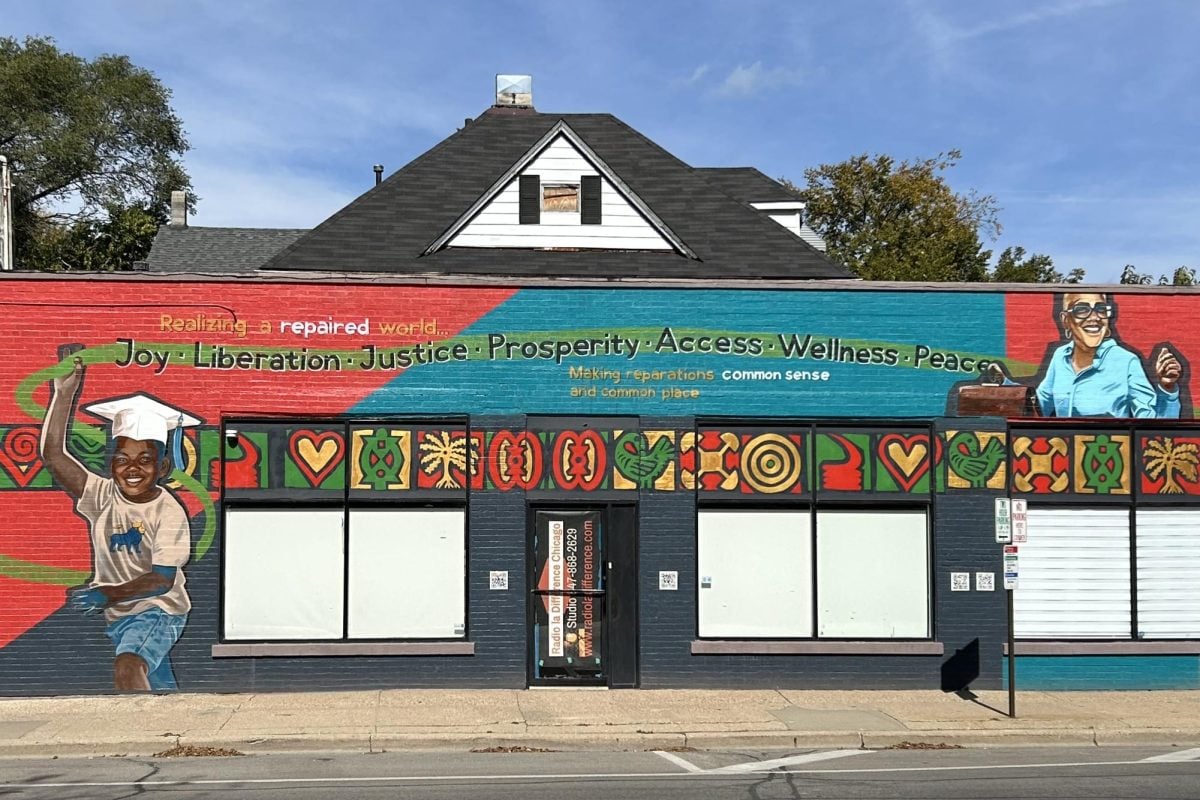After former Ald. Robin Rue Simmons (5th) retired from City Council in 2021, she said people all over the country still came to her asking for guidance on how to set up reparations initiatives in their own communities.
Rue Simmons, who was a council member from 2017-21, led Evanston’s reparations program, which now provides Black residents who lived in Evanston from 1919 to 1969 and their direct descendants with grants of up to $25,000.
Evanston’s reparations program became the first of its kind in the nation in 2021 and was challenged in court in May by a conservative activist and non-Black Evanston residents.
In response to the requests from communities across the country, Rue Simmons founded FirstRepair, a nonprofit that aims to create tools and share practices that lead to sustainable local reparations policies. FirstRepair does this by leading workshops and conferences around the country and conducting research.
FirstRepair, founded in 2021, now serves over 100 localities around the country, such as Tulsa, Oklahoma, and Denver.
FirstRepair’s latest project is the National Resource Center for State and Local Reparations, located at the organization’s headquarters, 1900 Asbury Ave. The center will open on Dec. 4, the first day of the organization’s fourth annual symposium, Rue Simmons said.
The center will include a library and other tools to support the reparations movement, she said.
A mural, unveiled in July, surrounds the center and celebrates Black excellence, she added.
The organization also holds monthly national strategy sessions for community leaders to collaborate and share ideas, Rue Simmons said. She added that there are also monthly meetings for FirstRepair’s west, east, midwest and south regions, which aim to allow community leaders to work more closely with each other.
The name ‘FirstRepair’ comes from Rue Simmons’ belief that before public policies can be implemented, communities should work to repair the harm that the Black community has endured, she said.
FirstRepair’s logo is three circles inside of each other, the Adinkra symbol for leadership from West Africa, representing the leadership Evanston has shown in the reparations movement, Rue Simmons said.
She emphasized that helping local communities with their reparations programs is important because many national initiatives start with grassroots action.
All of the communities FirstRepair works with approach the organization for help, Rue Simmons said. The nonprofit doesn’t have the capacity to do its own outreach, she said.
More localities became interested in reparations in 2020 after George Floyd was murdered and the Black Lives Matter movement gained momentum, Rue Simmons said.
“(FirstRepair) was a direct response to a growing demand in this nation for racial redress,” Rue Simmons said.
Some localities, however, come to FirstRepair before they are ready to implement a reparations program, she said.
Rue Simmons said the criteria for a community to start its own reparations initiative includes having a legislative champion — someone who will continuously advocate for reparation initiatives — communal political will and support for the Black community.
Vanessa Hall-Harper, Tulsa District 1 City Councilor, is one of the main advocates for a reparations initiative in Tulsa.
She said she began collaborating with FirstRepair in 2021, when Tulsa City Council was looking to pass resolutions to acknowledge the Tulsa Race Massacre of 1921, a race riot against Black residents and their homes and businesses.
In August, Tulsa created the Beyond Apology Commission, which is looking into a monetary reparations program for victims of the Tulsa Race Massacre and their descendants.
Hall-Harper said she attends FirstRepair’s annual symposiums to stay involved and learn from other communities starting their own reparations programs.
She calls the people at FirstRepair and these events her “reparations family,” she said.
“We are working together,” Hall-Harper said. “And although one community’s repair or one community’s approach may even be different, the solution, or the end game, is the same and that’s justice.”
FirstRepair also holds general legal strategy sessions, focused on frameworks community leaders can use for their reparations initiatives, and events at local schools and at the United Nations in Geneva, Switzerland.
At the U.N.’s Permanent Forum for People of African Descent in April, FirstRepair, along with several U.S.-based law centers, hosted a side event focused on reparative justice, according to Elisa Walker, FirstRepair’s communications associate.
Walker, who grew up in Evanston, said she feels especially close to the reparations movement because she has seen how it impacted her community.
“Then once I started to evolve in FirstRepair, it’s really the narratives and the stories that I hear from the community members of (other) municipalities, about their history, about what reparations means to them,” she said.
Email: anaviprakash2027@u.northwestern.edu
X: @anavi_52
Related Stories:
— The Daily Explains: Contextualizing the Evanston reparations lawsuit
— Evanston Reparations Committee collaborates with Liberty Bank
— YWCA announces Robin Rue Simmons and Tosha Wilson as 2023 YWomen honorees



















